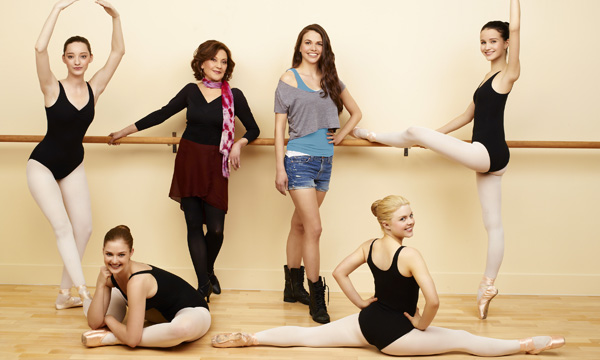“Language is marked so deeply by the expression of subjectivity that one might ask if it could still function and be called language if it were constructed otherwise.â€
~ EÌmile Benveniste
20
A hard squeeze. A firm grip around
your wrist. A continuous, firm grip
that pulls. A grip that pulls and
guides, fingers encircling your wrist.
Pulled out from your side, your
wrist becomes your guide. You make your
arm pliable and light. You put your elbow
at the ready. Steered onto
the left-hand path, in twilight you can make out
patches where the earth has been
worn away. So that her grip may
continue, you slow your steps on the
downhill path. At the riverbank, after
the incline. Your wrist released. You
stop where she stops. You look at
the river, at the men looking at the
river. The other side is populated by
huddles of short bushes who squat
low to the ground. You move slowly away from
her, wanting a better look at
the brown water. It seems covered in a blanket
of gray, although there is no fog.
14
That night, they dreamt that they had
forgotten who they were, but not quite
that—like they always had an
audience of many people watching,
even when trying to fall asleep,
but not that either, or
that wasn’t the strange part.
The strange part was the feeling of
forgetting who they were, being watched
and not being able to remember
the difference between the
people being seen and the
people they knew themselves to be,
that they couldn’t remember
what they were beyond a body
Of complete vacancy, so absolute
they felt themselves stretching
to contain it. Not knowing who they were,
it seemed possible they could be anyone,
certainly at the very least, they’d never
felt this way before, although
the many eyes were familiar. Despite
this, they slept well.
12
Maybe it started when she used
her dupatta to wick off the sweat
before sticking a bindi between
your eyes while he watched.
13
She gave her a biscuit she didn’t want,
which was sweet. She tried to give it
back, she made it into a game, handing
it back and forth, losing it and returning
it to her. Eventually, she fed it to the
goat.
Or maybe it started when you pulled
her hair back into a ponytail,
the comb catching her ears
and scraping her scalp. Like a picture of the classic
scene between mother and daughter.
17
They teach you how to eat again.
Without a spoon, the grains just
slide between your fingers. They stand
over you with their hands on their
hips, push their
hands into the pile and show you how
it’s done. Their hands
are the perfect tool for forming
balls of rice and pushing them between
teeth, for making the many into the
one for opening wide and chewing.
The sweat is gathering in drops on
your forehead and upper lip being
watched by them.
She gives you a ring and you gesture toward
her scarf, smiling. She hands it to
you, says “ha, ha, ha, apka.â€
18
You smile and drape it over your chest,
wear it around the village the rest
of the day, making her do double
takes—what double is there, wearing
her same scarf? (Back in Delhi, she
cannot find another one like it,
dismayed and validated,
having given away her favorite.)
19
They wanted to write a poem about
the body
not about a
body’s ability to inspire desire or
to give or receive pleasure or pain or
power. Instead the body as its own end, as inseparable from the mind—
one big, body-shaped brain.
21
(You never touch her, always it is she
initiating and ending the touch, deciding
its terms. Except maybe your arm, once or twice,
when you were taking pictures.)
22
A Gregory Deva 60 pack in red, gray,
and black, a wool purse,
Neutrogena 100 SPF, doxycycline, chocolated
laxatives, elastic headbands in lime green,
turquoise, and black, glasses with plastic
frames, Arm & Hammer deodorant, Chaco
double toe strap sandals in black, skirts
and cotton, silk, and linen
blouses, pepper spray, a stained
money belt, a copy of her passport, a ring,
a bracelet, scarves, ibuprofen, clip-on
sunglasses, and a safari hat.
23
A red Pooja string, an elastic hair
tie, safety pins, an umbrella, a synthetic Mickey
mouse sheet, a reused
Sprite bottle, a plaid cloth, metal
cups, bowls, plates, and pots, a plastic
pink water pitcher, a wooden bed built up on bricks, pillows,
a borrowed moped, stick-on felt bindis,
maroon nail polish, small mirror in a
plastic frame, a plastic comb, lotion,
hair oil, a tube of henna, a container
of red dye, a large bucket, a small bucket,
a water pump, and a small TV covered in plastic.
~ Declan Gould
Declan Gould is the author of the chapbook ‘Model Figure’ (Shirt Pocket Press), and her writing appears in Falling in Real Time, Mobius, Visions International, and The Conversant. She is a PhD student in SUNY Buffalo’s Poetics program and holds an MFA in poetry from Temple University. Declan is a 2015-2016 fellow of The (Great) Indian Poetry Collective.





